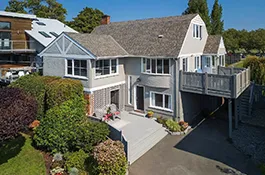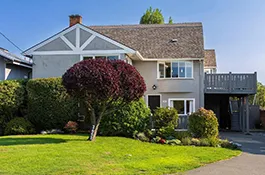Unlock Your Dream: Mastering Property Deals in 2025
Selling a Specialist Retirement Property
After years in real estate, I’ve seen firsthand how buying and selling a house simultaneously can be incredibly complicated. The dreaded property chain often creates chaos, tripping people up at the last minute. Having worked through countless transactions in the UK, where this practice is increasingly popular, I’ve developed some simple steps to help everything run smoothly. The appeal of selling privately is clear – the main incentive being to avoid estate agent fees – but this can be a daunting process for those unfamiliar with property transactions.
DIY Property Sales: A Guide for Retirement Property Owners
My professional experience offers valuable insight that can save time, stress, and money in the longrun. Consider the approach of Jean Medland, a Southern Vancouver Island Realtor who no longer charge estate agent fees, offering services completely free – truly the best of both worlds. While the private sale route might seem attractive, remember that even experts follow a step-by-step guide when managing their own property transactions. I’ve helped clients navigate this process countless times, ensuring they avoid potential pitfalls that could derail their property dreams.
Taking Control of the Private Sale Process
Handling a private house sale for a retirement property involves a specific process that differs from standard selling. During my 15 years helping seniors transition to new living arrangements, I’ve seen many successfully manage without an estate agent. As the seller, you become responsible for every aspect – from marketing to arranging viewings and negotiating with potential buyers. This approach has grown increasingly popular in recent years, largely because the internet has made it significantly easier to advertise properties to a wider audience.
Essential Steps for a Successful Private Sale
Understanding how to sell your retirement property privately is quite similar to traditional methods, with some key differences. For the strategy to work, first get property ready by decluttering and highlighting accessibility features. Then set asking price that accurately reflects value – research comparable retirement properties in your area. I always recommend clients create high-quality photos that showcase senior-friendly attributes, along with detailed descriptions to advertise effectively online. Once you’ve generated interest, be prepared to arrange viewings during daylight hours and negotiate directly with prospects who understand the retirement property market.
Managing the Legal and Financial Aspects
After you’ve agreed on a price with a qualified buyer, instruct solicitor who specializes in retirement properties to handle legal aspects. They’ll manage any restrictions specific to retirement developments, such as minimum age requirements for new owners. Create an estimate of the total cost including legal fees and any exit fees charged by retirement community operators. If your property was previously rented out or used to rent out to tenants, remember to check if you need to pay Capital Gains Tax and give notice to end tenancy arrangements. Professional help from a specialized solicitor is invaluable here.
Navigating Special Circumstances and Complexities
Be aware that selling retirement properties involves extra steps compared to standard homes. If you sell a property where the other owner has lost mental capacity, additional documentation is required. Similarly, when selling someone’s home after they die through probate, or selling for someone else using power of attorney, you’ll need specialized legal assistance. I recently guided a family through selling their father’s retirement apartment while using power of attorney – navigating these complexities requires patience, but ensures a smooth transition for all parties involved.




